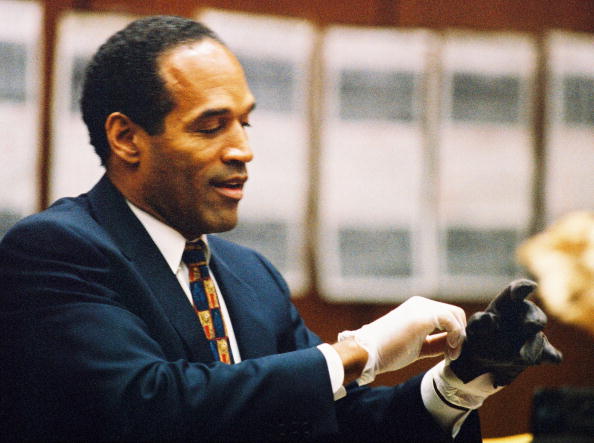For decades, ex-felons returning to their communities have been met by obstacles that made it difficult for them to get back on their feet. Most were banned from affordable public housing, certain jobs, and obtaining grants to go to college because of their criminal records.
Unable to find housing or decent jobs to support themselves and their families, most men and women eventually return to the life of crime that tripped them up in the first place.
Most of those men and women are people of color. The NAACP says African-Americans, jailed at nearly six times the rate of Whites, account for half of the nation’s 2.3 million incarcerated population. Blacks make up about 13 percent of the U.S. population, highlighting racial disparities in the criminal justice system.
On Monday, President Barack Obama unveiled a series of initiatives to overhaul the criminal justice system, including greater access to public housing, educational grants, and job training. Here’s how the reforms will help Blacks and other people of color.
Help reduce the rate of recidivism
Prison fails to rehabilitate behavior, as two-thirds of prisoners will reoffend, says the NAACP. Obama stressed the importance of providing a bridge from prison to the community.
While visiting Integrity House, a non-profit substance abuse rehabilitation organization that takes a comprehensive services approach to re-integration in Newark, N.J. on Monday, the president met with Daryl Rose. Obama spoke with Rose, who moved to the center after his release, and his relatives about the toll incarceration takes on families and the critical role they can play in the community re-entry and rehabilitation process.
“I was getting in my own way and now I am back on track,” Rose told the president, Valerie Jarrett wrote in a tweet.
Provide job training
Imprisonment reduces work time of young people over the next decade by 25-30 percent in comparison to youths who were arrested, but not incarcerated. As a result, many ex-felons leave prison without skills. Employers also dismiss them as potential hires after learning about a candidate’s criminal history.
Obama announced grants to provide job training for people with criminal records, including a software development program in Newark. He also unveiled a national clearinghouse to help former inmates expunge or seal records.
Watch Obama tell Dquan Rosario‘s story:
Supply housing
Most ex-felons are blocked from public housing, a measure of “one strike and you’re out” convictions that gained popularity in the 1990s. Now, the president has issued new guidance for public authorities that clarifies when arrest records can be used to determine eligibility for assisted housing.
More than 600,000 inmates are released each year, and about 70 million Americans have a criminal record, which makes it difficult for them to find jobs and housing, the president says.
The Department of Housing and Urban Development and the Bureau of Justice Assistance at the Department of Justice have launched an $8.7 million demonstration grant to address homelessness and reduce recidivism among the justice-involved population, according to the White House.
The program will explore cost-effective means to help people stuck in the endless criminal justice and homeless service systems, while making new permanent supportive housing available for ex-inmates.
“It means millions of Americans have difficulty even getting their foot in the door to try to get a job much less actually hang on to that job,” the president said Monday during a speech at Rutgers University Center for Law and Justice Building in Newark, according to a statement from the White House. “That’s bad for not only those individuals, it’s bad for our economy. It’s bad for the communities that desperately need more role models who are gainfully employed. So we’ve got to make sure Americans who’ve paid their debt to society can earn their second chance.”
President Obama has made overhauling the nation’s criminal justice system a top priority for his last year in office. And a bipartisan measure co-sponsored by New Jersey Senator Cory Booker to revamp the criminal justice system arrived on the Senate floor last month. A similar bill is wending its way through the House.
“I urgently encourage both the Senate and the House to pass these bills,” the president said, according to the White House. “It will not completely change the system overnight, but it will lock in some basic principles that we understand are going to make us a fairer and safer society over the long term. And I am very proud of the work that those legislators are doing. I’m especially proud because it’s not typical that Democrats and Republicans get together on useful legislation.”
We too hope to see more changes to the criminal justice system that has long worked against communities of color.
PHOTO CREDIT: Twitter, Getty
Watch Roland Martin, Rep. Barbara Lee (D-CA), Manuel La Fontaine from the National Ban the Box Campaign and the NewsOne Now panel discuss Pres. Barack Obama’s order to federal agencies to “Ban the Box” on federal job applications in the video clip below.
TV One’s NewsOne Now has moved to 7 A.M. ET, be sure to watch “NewsOne Now” with Roland Martin, in its new time slot on TV One.
SEE ALSO:
Don’t Miss Our Hottest Stories! Get The NewsOne Flip App for iPhone: Flip, Skip — Or Send Us a Tip!


















